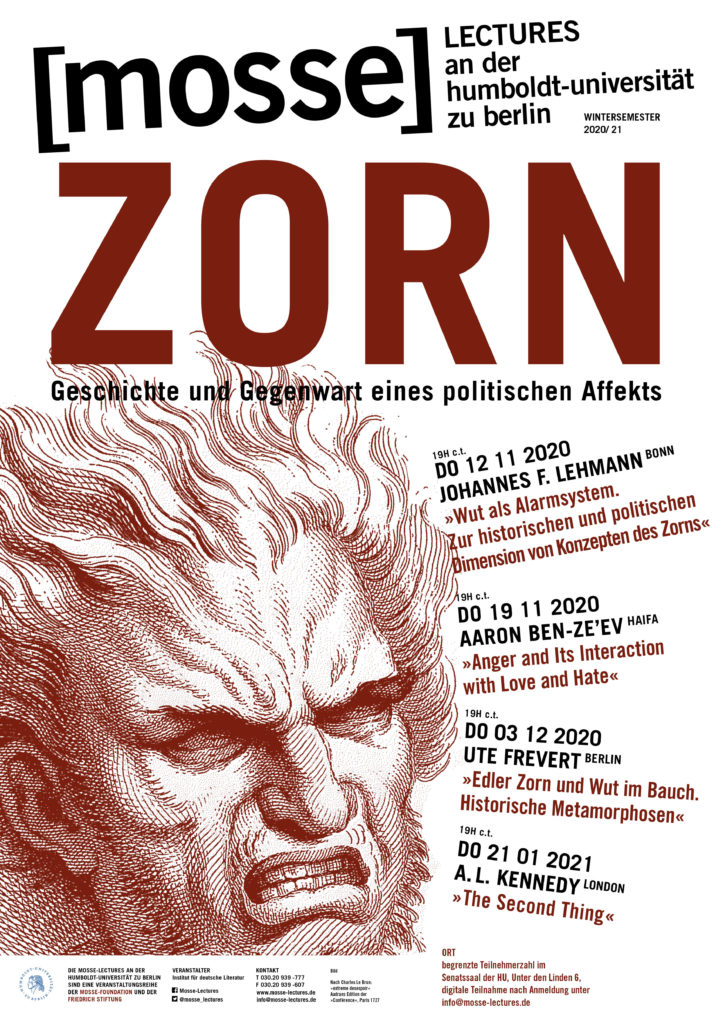History and Presence of a political affect
Anger, as similar emotions like wrath, outrage and hate, has become, in word and deed, a driving force of political wrangling. Well known in history, it points to a particular escalation of emotions, ground-breaking in political affairs. Art, religion, anthropology and the law have addressed its particular nature. ‘Anger’ is the very first word of Homer’s “Illiad”, and thus it marks the beginning of European literary history. Time and again Sophocles and Shakespeare in drama, Kleist and Melville in their narratives have explored the connection and the synergetic effects of expression and affect, of sign and emotion. ‘Anger’, is it an affect of divine nature? And why and when does it turn over into metaphysical hatred, into fundamental hostility, or nothing more than resentment, a need of revenge? This significant scaling of affect and passion has been, until today, a prominent issue in the history of religion, in ethnology and social psychology. More recently this feeling, collectively exalted in the reactions of so called ‘angry citizens’ (‘Wutbürger’), has been recognized as a symptom of crisis of the representative democracy, a strong factor in the political game.
Against this background the Mosse-Lectures will explore what is at the core of thymós as a habit of political conduct and action, tracing its tradition and public interest, its recent populist drive, termed “anger marketing” (“Zorngeschäft”) by Peter Sloterdijk. As a part of the arcanain the classical art of governing, the ruling class well calculated emotional control rather than a control system for possible public anger. It is only in modernity that an ambivalent attitude to the political affect of anger and its collective force emerged: spreading horror images of a raging mob on the one hand, deliberately mobilizing the masses on the other. This seems to be even more true these days as it remains debatable what shape of the affect may serve what kind of political concept. Wrath and rage also breakthrough in the established middle class. Is this a resentment of the privileged, militantly self-centered, aggressively self-righteous? And how about Stéphane Hessel’s claim, that anger, the outrage of those obviously underprivileged (the subalterns, the disadvantaged) has to be considered as a more honest, justified and therefore more legitimate kind of protest and resistance?
Speakers
Johannes F. Lehmann, Bonn
»Wut als Alarmsystem. Zur historischen und politischen Dimension von Konzepten des Zorns«
Thursday, 12.11.2020, 19 Uhr c.t.
Aaron Ben-Ze’ev, Haifa
»Anger and its Interaction with Love and Hate«
Thursday, 19.11.2020, 19 Uhr c.t.
Ute Frevert, Berlin
»Edler Zorn und Wut im Bauch. Historische Metamorphosen«
Thursday, 03.12.2020, 19 Uhr c.t.
A. L. Kennedy, London
»Just One More Thing«
Thursday, 21.01.2021, 19 Uhr c.t.


